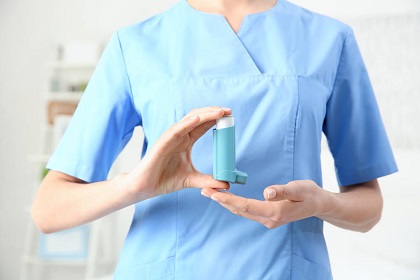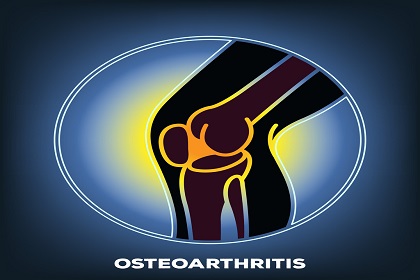Search
Why get vaccinated?
Hepatitis B is a serious disease that affects the liver. It is caused by the hepatitis B virus. Hepatitis B can cause mild illness lasting a few weeks, or it can lead to a serious, life long illness. Hepatitis B virus infection can be either acute or chronic.
Acute hepatitis B virus infection is a short-term illness that occurs within the first 6 months after someone is exposed to the hepatitis B virus. This can lead to:
• Fever, fatigue, loss of appetite, nausea, and/or vomiting
• Jaundice (yellow skin or eyes, dark urine, clay-colored bowel movements)
• Pain in muscles, joints, and stomach
Chronic hepatitis B virus infection is a long-term illness that occurs when the hepatitis B virus remains in a person's body. Most people who go on to develop chronic hepatitis B do not have symptoms, but it is still very serious and can lead to:
• Liver damage (cirrhosis)
• Liver cancer
• Death
Chronically-infected people can spread hepatitis B virus to others, even if they do not feel or look sick themselves. Hepatitis B is spread when blood, semen, or other body fluid infected with the Hepatitis B virus enters the body of a person who is not infected. People can become infected with the virus through:
• Birth (a baby whose mother is infected can be infected at or after birth)
• Sharing items such as razors or toothbrushes with an infected person
• Contact with the blood or open sores of an infected person
• Sex with an infected partner
• Sharing needles, syringes, or other drug-injection equipment
• Exposure to blood from needle sticks or other sharp instruments
Hepatitis B vaccine can prevent hepatitis B and its consequences, including liver cancer and cirrhosis.
Hepatitis B vaccine
Hepatitis B vaccine is made from parts of the hepatitis B virus. It cannot cause hepatitis B infection. The vaccine is usually given as 3 doses over a 6-month period. Infants should get their first dose of hepatitis B vaccine at birth, second dose at first month and third dose at six month. All children and adolescents younger than 19 years of age who have not yet gotten the vaccine should also be vaccinated.
Hepatitis B vaccine is recommended for unvaccinated adults who are at risk for hepatitis B virus infection, including:
• People whose sex partners have hepatitis B
• Sexually active persons who are not in a long-term monogamous relationship
• Persons seeking evaluation or treatment for a sexually transmitted disease
• Men who have sexual contact with other men
• People who share needles, syringes, or other drug-injection equipment
• People who have household contact with someone infected with the hepatitis B virus
• Health care and public safety workers at risk for exposure to blood or body fluids
• Residents and staff of facilities for developmentally disabled persons
• Persons in correctional facilities
• Victims of sexual assault or abuse
• Travelers to regions with increased rates of hepatitis B
• People with chronic liver disease, kidney disease, HIV infection, or diabetes
• Anyone who wants to be protected from hepatitis B
There are no known risks to getting hepatitis B vaccine at the same time as other vaccine.
Some people should not get this vaccine
Tell the person who is giving the vaccine:
• If the person getting the vaccine has any severe, life-threatening allergies. If you ever had a life-threatening allergic reaction after a dose of hepatitis B vaccine, or have a severe allergy to any part of this vaccine, you may be advised not to get vaccinated. Ask your health care provider if you want information about vaccine components
• If the person getting the vaccine is not feeling well. If you have a mild illness, such as a cold, you can probably get the vaccine today. If you are moderately or severely ill, you should probably wait until you recover. Your doctor can advise you
Risks of a vaccine reaction
With any medicine, including vaccines, there is a chance of side effects. These are usually mild and go away on their own, but serious reactions are also possible. Most people who get hepatitis B vaccine do not have any problems with it.
After vaccination, please stay in clinic observation area for 30 minutes.
Minor problems following hepatitis B vaccine include
• Soreness where the shot was given
• Temperature of 99.9°F or higher
If these problems occur, they usually begin soon after the shot and last 1 or 2 days.Your doctor can tell you more about these reactions.
Other problems that could happen after this vaccine
• People sometimes faint after a medical procedure, including vaccination. Sitting or lying down for about 15 minutes can help prevent fainting and injuries caused by a fall. Tell your provider if you feel dizzy, or have vision changes or ringing in the ears
• Some people get shoulder pain that can be more severe and longer-lasting than the more routine soreness that can follow injections. This happens very rarely
• Any medication can cause a severe allergic reaction. Such reactions from a vaccine are very rare, estimated at about 1 in a million doses, and would happen within a few minutes to a few hours after the vaccination
As with any medicine, there is a very remote chance of a vaccine causing a serious injury or death.
What if there is a serious reaction?
What should I look for?
Look for anything that concerns you, such as signs of a severe allergic reaction, very high fever, or behavior changes. Signs of a severe allergic reaction can include hives, swelling of the face and throat, difficulty breathing, a fast heartbeat, dizziness, and weakness. These would start a few minutes to a few hours after the vaccination.
What should I do?
If you think it is a severe allergic reaction or other emergency that can't wait, call 120 or get the person to the nearest hospital. Otherwise, call your doctor.
Where can I get more information?
• Jiahui Health
Contact number: 400-868-3000
• Shanghai Municipal Center for Disease Control & Prevention
Contact number: 021-62758710
Website: http://www.scdc.sh.cn
Reference
The US Centers for Disease Control and Prevention. Vaccine Information Statement: Hepatitis A Vaccine, 07/20/2016
Click the link for more information on Family Medicine Clinical Service
Click the link for more information on Pediatrics Clinical Service











